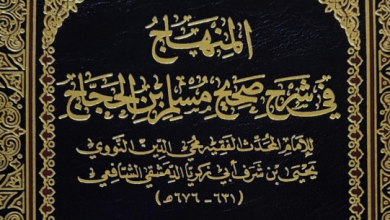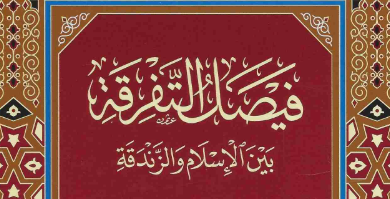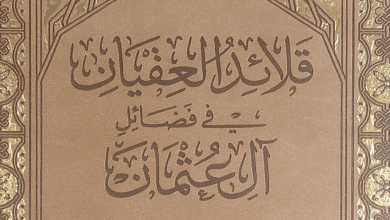Have We Surpassed the Classical Scholars of Islām?
Have We Surpassed the Classical Scholars of Islām?
Translator’s Preface
The following is an excerpt from our abridged translation of Athar al-Hadīth al-Sharīf fī Ikhtilāf al-A’immah al-Fuqahā’. In this excerpt, the author addresses a misconception, which has plagued many academic circles in recent times, i.e. the idea that we have surpassed the classical scholars of Islām, due to the abundant availability of hadīth literature and means of acquiring knowledge.
The superficiality of such a notion is quite apparent to those who have impartially studied the works of our early scholars. ‘Allāmah al-Dhahabi (d. 748 AH), one of the greatest historians and scholars of hadith, explains the stark contrast between the early and latter-day scholars and the inability of the latter to ever reach the ranks of the former. While discussing a particular work of Imām Abū Bakr al-Ismā‘īlī (d. 371 AH), he states, “I was amazed by the memory of this Imām and was convinced that the latter-day scholars have no hope in reaching the ranks of the early scholars in memorization and knowledge.”[1] It is important to note that he made this assessment in an era filled with great scholars of hadith, such as Ibn Daqīq al-‘Īd (d. 702 AH) and Jamāl al-Dīn al-Mizzzī (d. 742 AH), whose knowledge and expertise in hadith is undisputedly beyond the reach of modern day scholars!
The following is only an abridged translation and therefore several sections have been omitted and others were summarized. To make the article more-reader friendly, an idiomatic translation was adopted in many places.
Muntasir Zamān
————————————————————————————————————–
Have we Surpassed the Classical Scholars of Islām?
By Shaykh Muhammad ‘Awwāmah
Translated by Muntasir Zamān
Some people claim:
Nowadays the available books of Sunnah are many and more easily accessible for contemporary researchers as opposed to earlier scholars. Furthermore, benefiting from such works have become a simpler task due to printing, various indexes, and computer programs. Thus, it is a simple task to rely on these works, accept what is proven, abandon what is not proven, establish those juristic rulings that are substantiated with evidence, and filter jurisprudence from unsubstantiated opinions.
There are several answers to this claim:
Firstly, this is a very foolish statement. The ancient Arabic adage goes,
“Knowledge is not what is found on paper; knowledge is only what the heart contains”
Al-Khatīb al-Baghdādī writes:
A wise man was told, “So and so gathered a large collection of books,” so he asked, “Is his understanding equivalent to the amount of books he possesses?” The reply was in the negative. He then remarked, “He has not accomplished anything; what value do animals have for knowledge?” One person told another who wrote but did not comprehend what he wrote, “Your writing has only resulted in unnecessary tiredness, excessive sleepiness, and waste of paper.”[2]
Ibn Taymiyyah writes:
…Those who preceded (the era) of the compilation of these archives were more knowledgeable about the Sunnah than those who came afterwards. Their archives were their hearts, the contents of which surpassed the contents of the (compiled) archives manifold. This is an undisputed fact amongst those who understand this issue. [3]
Secondly, despite the multitude of works that our earlier scholars have written and the abundance of their heritage that has reached us, this only reflects a minute percentage of their knowledge. This is because they would only document a fraction of what they knew, as we learnt from the statement of Ibn Taymiyyah mentioned above. Imām al-Bāghandī mentions, “I answered three-hundred thousand issues from the Hadīth of the Messenger of Allāh (peace and blessings be upon him)!
Thirdly, the largest available Hadīth work is Kanz al-‘Ummāl of al-Muttaqī al-Hindī which contains over forty-six thousand narrations. However, to benefit from it as the claimant wishes to is not a simple task, because it is difficult to refer to many of its sources and to examine the chains of transmission.
Fourthly, the number of narrations found in Kanz al-‘Ummāl is by far less than the number of narrations that the Mujtahid Imāms have heard. This is in spite of the countless repetitions found therein.
As we mentioned earlier, Imām Abū Hanīfah mentioned over seventy thousand narrations in his works, let alone those which he did not mention therein, and forty thousand narrations were selected for the compilation of al-Āthār alone! Ibn al-Hayyāb mentions that Imām Mālik narrated one hundred thousand Ahādīth. This is apart from what he heard and did not narrate.[4] It is famous that Imām Ahmad whilst compiling his Musnad selected from approximately seven hundred and fifty thousand Ahādīth!
A person asked Imām Ahmad, “If a person memorizes one hundred thousand Ahādīth, will he be regarded as a jurist?” He responded, “No.” The questioner then asked, “What about two-hundred thousand?” He responded, “No.” He asked, “What about three-hundred thousand?” He responded, “No.” He asked, “What about four-hundred thousand?” In response, Imām Ahmad made a hand gesture i.e. perhaps he is qualified to be mujtahid (jurist who can pass verdicts).[5]
Yahyā ibn Ma‘īn mentions that a person who memorizes five-hundred thousand Ahādīth might be qualified to exercise ijtihād and pass verdicts.[6] Commenting on this, al-Khatīb states, “When a person assumes the post of issuing verdicts, it is insufficient to gather what Yahyā (i.e. ibn Ma‘īn) mentioned without understanding, examining, and mastering it, for indeed knowledge is understanding and comprehension; knowledge is not excessive transmission.[7]
We do not deny that among this large number there exists reports of the Companions, the statements of the Successors, and narrations with multiple chains of transmission. However, the difference is still great, not to mention that generally repeated chains contain variations in the wording, which has a profound impact on understanding and deducing from the Hadīth. Likewise, the reports of the Companions will assist in understanding how the predecessors understood the religious texts and what should be practiced upon.
Fifthly, even if we assume that this large collection of narrations is available, the differences of the Imāms will remain as long as the other causes of difference remain, which play a greater role in their differences than the fourth cause.
Once a woman passed by a gathering wherein Yahyā ibn Ma‘īn, Abū Khaythamah, and Khalaf ibn Ismā‘il were in a group discussing Hadīth. She heard them saying, “The Messenger of Allāh said, I heard the Messenger of Allāh, so and so narrated, and no one besides so and so narrated it.” She asked whether a menstruating woman could wash the deceased, but no one answered her. Everyone began looking at one another. Thereafter, Abū Thawr came, so the women was told to refer to him. Accordingly, she went to him and posed the same question. He replied, “Yes, she may wash the deceased based on the Hadīth of ‘Uthmān ibn al-Ahnaf, from al-Qāsim, from ‘Ā’isah that the Prophet (peace and blessings be upon him) told her, ‘Your menstruation is not in your hand,’ and based on her statement, ‘I would part the hair of the Prophet with water while I was in the state of menstruation.” Abū Thawr then mentioned, “When she was allowed to part the head of the living with water, it should be permissible to do it for the deceased to a greater extent.” Those present began saying, “Yes, so and so narrated it; we recognize it from so and so route.” They delved into the various routes of the hadith and its transmissions. The woman said, “Where were you all this time?”[8]
It is well-known that Imām Ahmad would advise his contemporaries from the Imāms of Hadīth who were deeply involved in the reception, imparting, and transmission of Hadīth and not as involved in jurisprudence to attend the gathering of Imām al-Shāfī‘ī and benefit from his understanding and transmission. From among them were Ishāq ibn Rahway, Yahyā ibn Ma‘īn, al-Humaydī and others, each of whom were (equivalent to) a nation in memorizing, encompassing, and evaluating Hadīth. If knowing Hadīth was sufficient-as some portray to beginners in Islamic studies- there would be no reason for Imām Ahmad’s advice. Rather, there would be no benefit for him in accompanying Imām al-Shafi‘ī, particularly when Imām al-Shāfi‘ī himself would refer to him in matters of the Sunnah and would say, “You are more knowledgeable regarding Hadith than me. When a Hadīth is authentic, inform me of it, be it from Kufah, Basrah, or Shām, so that I may practice upon it when it is authentic.”[9]
I do not wish to present abundant examples in this regard so that in my speech one side (the jurists) supersedes the other (the Hadīth scholars). May Allāh be pleased with them all; each one of them served and protected Islām from the post in which Allāh had placed them.
Sixthly, even if we assume that all the available narrations are sufficient for exercising ijtihād, then too, this alone is insufficient for exercising ijtihād as there are other prerequisites: the mujtahid should have a firm grounding in all the essential and complementary Islāmic disciplines.
Imām al-Shāfi‘ī explains:
Only that person can pass a verdict concerning the religion of Allāh, who is well versed in the Book of Allāh: the abrogating, abrogated, decisive, equivocal, Makkī, and Madani verses, and what is intended with them and why they were revealed. Thereafter, he should have deep insight in the Hadīth of the Messenger of Allāh, and he should have knowledge regarding Hadīth as he does of the Qur’ān. He should have expertise in the Arabic language, poetry, and other components necessary for knowledge and understanding the Qur’ān. He should be just and speak less. He should be aware of the differences [of the scholars] of different lands. Above this, he should possess innate talent. When he has fulfilled the above, he is permitted to pass a judgment concerning what is lawful and unlawful; otherwise, he is not allowed to speak regarding knowledge neither is he allowed to pass verdicts. [10]
Abū Shāmah writes:
Indeed, deducing and examining juristic rulings is dependent on expertise in the principles of jurisprudence, which in turn is dependent on deep understanding of the Arabic language: its forms, modes, allegory, and correct use. Thus, many people went astray due to their ignorance in this regard, and they committed multiple errors in the essential and peripheral sciences.[11]
After mentioning the statement of Imām al-Shāfi‘ī and establishing it with proofs from the statements of the early generation, Ibn ‘Abd al-Barr adds:
He should analyze the life of the Messenger of Allāh. He should recognize the Companions who conveyed the religion from their Prophet [to distinguish between mursal and muttasil narrations]. He should study their lives and virtues. He should know the condition of those who conveyed from them [i.e. from the Companions and those after them], so that he may distinguish between the upright and unreliable among them.[12]
Ibn ‘Abd al-Barr is referring to the science of al-Jarh wa al-Ta‘dīl which in our era is sufficient to exhaust a fair portion of a student’s life.
Moreover, alongside all of the above, he should be adorned with righteous deeds: worship, piety, scrupulousness, abstinence, dignity, and the salient qualities of Islām so that he be an Imām in this field as well.
The Messenger of Allāh (peace and blessings be upon him) emphasized the importance of both understanding and piety in his advice to ‘Alī (Allāh be pleased with him) when he asked, “O Messenger of Allāh, if we were afflicted with a matter wherein there is no permissibility or prohibition, what do you instruct us to do? He replied, “Consult the jurist and the pious, and do not independently pass a judgment.” [13]
Fath ibn Abī al-Fath said to Imām Ahmad during his final illness, “Pray to Allāh that he appoints a good successor after you.” He asked, “Who should we ask after you?” He replied, “Ask ‘Abd al-Wahhāb al-Warrāq.” Some of those present remarked, “He does not possess much knowledge!” Imām Ahmad said, “He is a pious person, the likes of whom are inspired to reach the truth.”[14]
Rather, they would adopt piety before acquiring knowledge so that they acquire it in a state of piety, worship, god-consciences, and abstinence. Sufyān al-Thawrī mentions, “When someone wanted to acquire knowledge, he would first engage in worship for twenty years!”[15]
——————————————————————————————
[1] Al-Dhahabī, Tadhkirat al-Huffāż, vol.3, p.948
[2] Al-Baghdādī, al-Faqīh wa al-Mutafaqqih, 158:2
[3] Ibn Taymiyyah, Raf‘ al-Malām, 18
[4] Al-Zurqānī, , Sharh al-Muwatta’, 7:1
[5] Ibn al-Qayyim, I‘lām al-Muwaqqi‘īn, 1:48
[6] Al-Khatīb, al-Jāmi‘ li Akhlāq al-Rāwī, 174:2
[7] Ibid.
[8] Al-Ramahurmuzī, al-Muhaddith al-Fasil, 249
[9] Al-Bayhaqī, Manāqib al-Shāfi‘ī, 528:1
[10] Al-Bayhaqī, al-Faqīh wa al-Mutafaqqih, 157:2
[11] Abū Shāmah, Khutbat al-Kitāb al-Mu’ammal, 62
[12] Jāmi’ Bayān al-‘Ilm wa Fadlihi, 166:22
[13] Al-Tabrānī, al-Mu‘jam al-Awsat, #1641. Al-Haythamī mentions, “Its transmitters are reliable and from the transmitters of authentic narrations; Majma‘ al-Zawā’id, 178:1. In Miftāh al-Jannah, al-Suyūtī has authenticated it; p.40. Also, refer to the discussion in Kanz al-‘Ummāl, # 4188.
[14] Ahmad, al-War‘
[15] Ibn Abī Hātim, Taqdimat al-Jarh wa al-Ta‘dīl, 95







“which has plagued many academic circles in recent times”
If only it was restricted to these circles.
I’ve had heated discussions with one or two young ulama only recently who believe the very same thing: that the current availability of informatiopn means latter day scholars are more knowledgable.
The fact is, if all it took is an availability of information, who needs to go to darul uloom? The information that’s abundantly available to scholars is also available to any Tom, Dick or Harry. So what makes a young alim any more knowledgable than anyone else?
I mean, by their argument, all anyone has to do is learn Arabic from anywhere and then delve into the available information.
But, I think we all know that’s far from all it takes. it also leads us to question the thinking of some – a very few – of the young ‘scholars’ who seem to think they know it all.